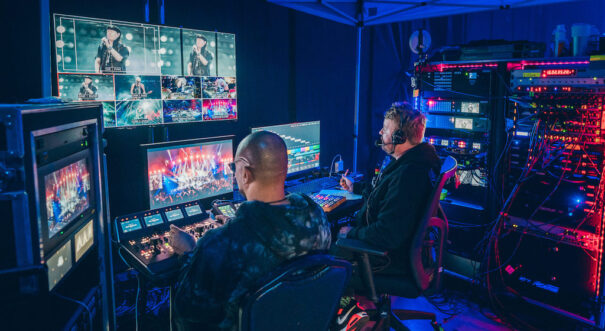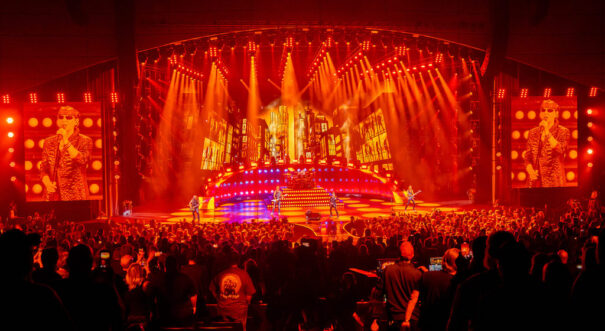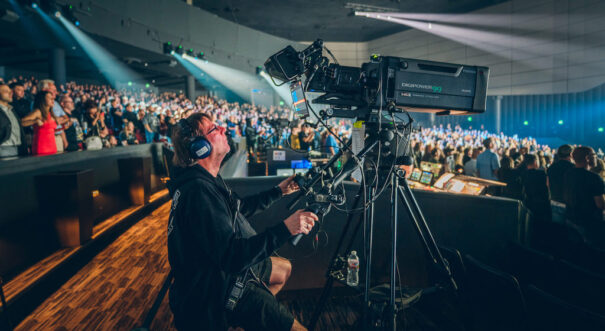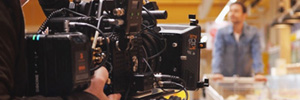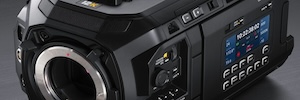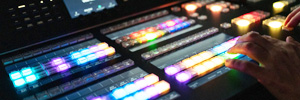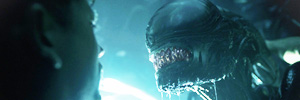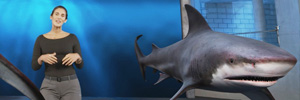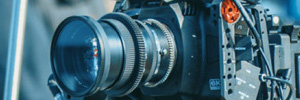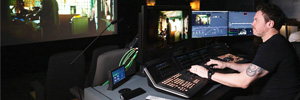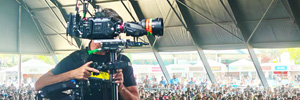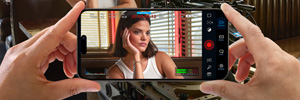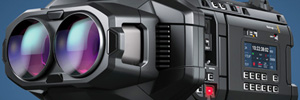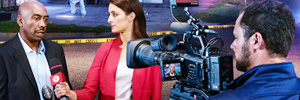The Scorpions’ ‘Rock Believer’ World Tour is using a multicamera production workflow with Blackmagic
URSA Broadcast G2 cameras and an ATEM Constellation 8K mixer from Blacmagic Design are proving to be an essential element in the multi-camera production of the Scorpions’ Rock Believer world tour.
Le Rock Believer World Tour follows the band’s Las Vegas residency at Planet Hollywood’s Zappos Theater, with Manfred Nikitser developing the creative concept, including video design and lighting.
“A key consideration for the production design was that the show had to work in the Zappos Theater and the arena tour dates,” begins Nikitser. “Likewise, the stage at Zappos, which is wider than traditional venues and more oval in shape, also presented a challenge when developing the video concepts.”
The live video elements were designed around a multicamera setup featuring five URSA Broadcast G2 cameras. Two of these are front of house (FOH) cameras on long lenses (99x) with three additional pit cameras for low angle, dynamic shots.
“We did a lot of research into the sensor upfront and were impressed with the camera’s low-light performance,'” says Nikitser. “Likewise, we also employ the accompanying camera and studio fiber converters, with everything controlled using the ATEM Camera Control Panel. The workflow’s cabling requirements are much lower than other SMPTE systems.”
All live camera signals feed through a Smart Videohub 40×40 12G router into an ATEM Constellation 8K. “The matrix allows me to send it to an external multiview unit and get direct outs straight into the media server,” notes Nikitser.
The program feed and one FOH camera feed, which is captured as a wide shot of the stage, are recorded using several HyperDeck Studio HD Plus broadcast decks.
LED screens
The tour’s LED screen setup is based on a rear screen and two IMAG screens in portrait mode left and right of the stage, all of which are fed outputs from a series of media servers. “This means we are sending multiple outputs of the ATEM Constellation via SDI into our media server where they are manipulated before they go on to the screens.”
The entire show is programmed into CuePilot, which feeds commands to the production switcher. “Each operator has a tablet and camera, and they can see when their next cut is and for how long. So, wherever the audience looks, they see something different,” explains Nikitser.
“We are in effect producing a series of mini video mixes for each individual screen,” he continues. “I use an effect in the media server to arrange where each camera feed appears. However, the real magic happens when employing the switchers’ four mixing layers, which are all operated simultaneously. And on top of that, I can then change any cut via my lighting console.”
“We run a very complex show with a tiny amount of tech that is both flexible and reliable. There is no other production on tour right now with a setup like this,” concludes Nikitser. “Despite the complexity, we’ve implemented a stable and straightforward system, ensuring we can focus on delivering a show-stopping performance.”
Ti è piaciuto questo articolo?
Iscriviti al nostro Nutrire e non ti perderai nulla.
•Sezione: Sono uno studente, Televisione, TV Aziendale, Produzione televisiva



